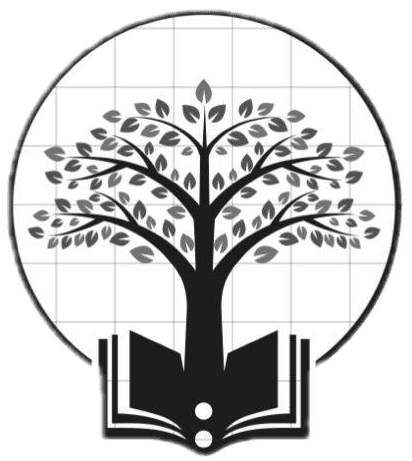Is Nursing the Real Heart of Medical Science?
Like every other medical profession, nursing plays a significant role in delivering care to diverse patient populations across the globe. However, here is the twist: nurses actually provide more direct, hands-on care than many physicians. Over the decades, the role of nursing as a science has evolved dramatically through the incorporation of research, theory, and evidence-based practice.
If you are struggling to write about this topic in your assignment, you can simply say pay someone to do my essay through our trusted platform, where expert writers specialize in healthcare and nursing theory.
This article explores how nursing is not just a job but also a scientific field of inquiry and a critical source of cultural competency in quality care, particularly for underserved groups such as Hispanics.
Nursing as a Science: More Than Bedside Care
Nursing is both a profession and a scientific discipline. Today’s nurses are very different from those of the past. With advanced education, specialization, and research-focused roles, they are no longer just caregivers. They are also producers of knowledge.
Organizations such as the American Nurses Credentialing Center (ANCC) have played a major role in shaping professional standards. Many registered nurses today hold Master’s degrees or higher and specialize in clinical practice, anesthesia, midwifery, and primary care (Reed, 2019). These professionals contribute not only to patient health but also to the advancement of evidence-based nursing theories.
✍️ If you are pressed for time, our urgent essay writing service is just a click away. Say “write my essay first” and our nursing specialists will handle the rest.
Scientific Inquiry in Nursing: Nurses as Research Contributors
Professional nurses are often the first line of insight in evidence-based research. By working closely with patients across different conditions and cultures, nurses generate valuable data that is crucial for developing and refining medical and nursing theories.
For instance, nurses who serve Hispanic and minority populations contribute firsthand data that researchers use to develop culturally competent models of care. According to Nair and Adetayo (2019), by the year 2045, nearly half of the U.S. population will belong to minority groups, which makes this work vital.
To explore how these responsibilities are reflected in real-world nursing practice, particularly among certified nurse practitioners, you can read our detailed nursing reflection on the CNP role, which examines their impact in diverse clinical settings.
The role of nursing as a science is essential for bridging the healthcare disparities faced by these communities.
Cultural Competency: A Scientific Necessity in Modern Nursing
One of the strongest examples of how the role of nursing as a science has grown is through the development of cultural competence. Nurses are now expected to understand a patient’s cultural and religious beliefs before administering care.
Training programs across the country have shifted toward integrating cultural sensitivity into nursing curricula. According to Kaihlanen and colleagues (2019), this transformation enables nurses to offer more personalized and effective care, especially for Hispanic communities.
Nurses spend several hours with patients during each shift. This close relationship makes them excellent observers who are capable of identifying patterns, spotting health disparities, and contributing data to research studies. They are not just caregivers. In fact, they are frontline researchers.
The Bigger Picture: Nursing, Theory and Scientific Advancement
A review of modern literature shows that nursing does not just apply science. Rather, it creates it. From forming hypotheses to informing theoretical models, the daily work of nurses supports some of the most significant advances in healthcare today.
The role of nursing as a science gives the profession a level of intellectual authority that is often underappreciated. Nurses inform, validate, and challenge scientific models through the hands-on knowledge they gain while caring for patients.
🩺“When you truly look at what nurses contribute (not just to patients but also to science) you realize they are the foundation of progress. Our writers are here to help you tell that story. Click Order Now and let us help you ace your coursework.”
AceMyCourse Nursing Team
Final Thoughts: The Scientific Power of the Nurse
From theory development to cultural competence, nursing stands as a central pillar of modern healthcare science. The evidence is clear. Nurses do not simply follow research. Instead, they create it. Their experiences form the basis of new medical theories, patient care models, and breakthroughs in public health.
Are you writing a paper on this topic? Feeling overwhelmed? You can pay someone to do my essay on our platform. Our team includes academic experts who specialize in nursing theory and research.
If you are in a rush, you can use our urgent essay writing service and say, write my essay first. We will get it done quickly and professionally.
References
Kaihlanen, A.-M., Hietapakka, L., & Heponiemi, T. (2019). Increasing cultural awareness: Qualitative study of nurses’ perceptions about cultural competence training. BMC Nursing, 18(1). https://doi.org/10.1186/s12912-019-0363-x
Nair, L., & Adetayo, O. A. (2019). Cultural competence and ethnic diversity in Healthcare.Plastic and Reconstructive Surgery – Global Open, 7(5).https://doi.org/10.1097/gox.0000000000002219
Reed, P. G. (2019). Intermodernism. Advances in Nursing Science, 42(1), 17–27. https://doi.org/10.1097/ans.0000000000000249
💡 Need help turning your nursing insights into a powerful research paper?
Our academic experts understand the science behind nursing and can help you articulate it with precision and clarity. Whether it’s a reflection, theory analysis, or evidence-based paper, we’ve got you covered.
👉 Click here to get started with your nursing paper – your success is just one smart move away.



